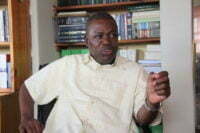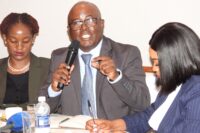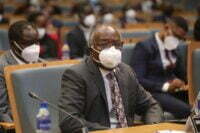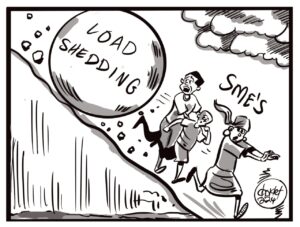RAINBOW Party president Wynter Kabimba says President Edgar Lungu should push an amendment to Article 128 of the Constitution, which remains a source of conflict between the Constitutional Court and the Speaker of the National Assembly.
Reacting to constitutional lawyer John Sangwa State Counsel’s remarks calling for President Lungu to intervene in ConCourt-Speaker affairs was dangerous as it was giving the Head of State powers he did not have, Kabimba explained the nature of involvement which President Lungu could have.
“Nowhere in my statement am I alleging that the President has powers to direct either the ConCourt or the Judiciary, or the Speaker. That is not the context of my argument. That is why I referred in my earlier statement to Bill 10, that now that Bill 10 is on the table, maybe this is the time that the Executive, the President, should take interest to deal with this matter and find a remedy to it. That is the context of my argument. So, I am not vesting powers in the President, which he doesn’t have under the Constitution to direct anybody,” Kabimba said in an interview.
“I am very alive to the fact that the President doesn’t have those powers under the Constitution. The powers that he has is to move amendments or to introduce amendments to Article 128, which can deal with this situation. So, if you read my statement in its entirety, you actually come to appreciate the context. But if you just read it, you just pick one sentence then you get into the pitfall that John Sangwa has gotten into because, then, you are overlooking the complete context of the statement.”
He insisted that Article 128 was problematic.
“I have read the statement of State Counsel John Sangwa which is a reaction to my statement on this apparent conflict. I still want to call it a conflict between the Office of the Speaker and the Office of the Constitutional Court. In my earlier article, I referred to the President taking interest in this matter or intervening in this matter not that the President has constitutional powers to direct either the Constitutional Court or the Speaker in the discharge of their functions, but I was calling upon the Executive to correct this adversity, this oversight, which clearly comes out when you read Article 128 of Constitutional Amendment Act Number 2 of 2016, and which overlooks investing the powers in the Constitutional Court to interpret the Constitution. It overlooks the functions of the Speaker in discharging his day-to-day functions when he is making rulings relating to the points of order raised,” Kabimba said.
“So, I used the word that it was clear, in my view, that when we are framing Article 128, the framers of that Article in 2016 did not take in to account the fact that the Speaker also interprets the law, including the Constitution, which John clearly in his earlier article put correctly, that as long as the Speaker has rulings confined to Parliament because they don’t create a precedent.”
He said the apparent conflict was neither the Speaker’s nor the ConCourt’s fault.
“I went further and said the Speaker himself in the ruling makes it very clear that when he is ruling on a point of order, he doesn’t sit as a court, he doesn’t exercise judicial functions. So, he doesn’t get into the parameter of a ConCourt in interpreting the Constitution. He makes his ruling in order to direct or respond to points of procedures raised by a point of order. There are no parties before him so he doesn’t rule against one party in favour of the other party. The Speaker makes it very clear in his ruling,” said Kabimba.
“So, the point that I was canvassing, and I still stick to that point is that, there is an apparent conflict here, which is not the fault of the Speaker and is no fault of the Constitutional Court, but it arrives from the framing of Article 128. So, I am not saying the Speaker is right or wrong, I am not saying the ConCourt is right or wrong; all that I am saying is that this conflict arises from the framing of Article 128, which has overlooked the fact that the Speaker performs or discharges functions, which relate to the interpretation of laws, including the Constitution when he is dealing with points of order. That cannot be made clear by the Speaker or the ConCourt, it must be made clear in the Constitution under Article 128.”












